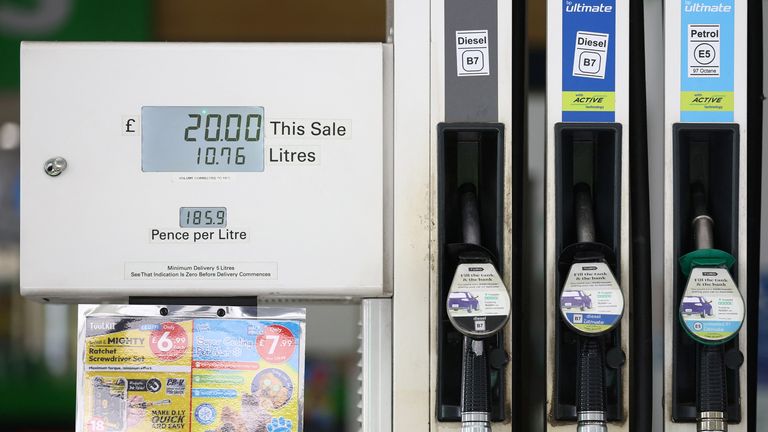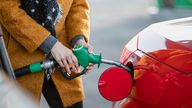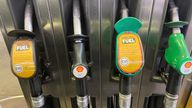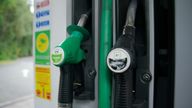Nine tips to reduce how much petrol or diesel you use amid record fuel prices
Chancellor Nadhim Zahawi has said "nothing is off the table" amid calls for a more substantial fuel duty decrease after the 5p-per-litre reduction implemented in March failed to halt price rises - but there are other ways you could cut fuel costs.
Friday 22 July 2022 08:39, UK
Petrol is at an average 187.5p per litre, while diesel is not far off £2 at 196.1p, and Chancellor Nadhim Zahawi is facing calls for a more substantial cut in fuel duty to ease costs for drivers at the pumps.
Things are so bad that some people are unable to afford the fuel to get to work - sparking fuel protests.
While help from the government would be welcomed by motorists, there are things they can do themselves to cut costs amid the fuel crisis. Here are our nine tips...
Fill up at a supermarket
Every month figures are released by the AA showing the cheapest places to buy fuel, and supermarkets are almost always the cheapest.
Drive as smoothly as possible
Driving as smoothly as possible will maximise your car's fuel efficiency. Accelerate gently - and importantly, avoid excessive speeds and heavy braking. Most dashboards now tell you your MPG - you could set yourself weekly targets to try and get this up. If you do, take note: many cars are most efficient when driven between 45mph and 50mph.
Driving on hills
On hills, gain momentum by accelerating a little before you reach them, then ease off as you drive up.
Take off roof boxes
Roof boxes create wind resistance and raise fuel consumption - take it off when not using it. Empty roof racks add 16% drag when driving at 75mph, according to the Energy Saving Trust.
Mind the air con
Look at how often you use air con and heating - they drain fuel.
Remove extra weight inside
Declutter your car - extra weight means more fuel is needed to power the vehicle.
Keep tires inflated to right pressure
Check your tyres are inflated to the pressure stated in your owner's manual. Under-inflated or over-inflated tyres cut fuel economy.
Round trips are better
Warm engines are more efficient than cold ones, so making one round trip is better for fuel efficiency than several short journeys, even though the mileage could be the same.
Walk, cycle, run
Do you have to drive? Consider walking or cycling rather than driving for short journeys.



